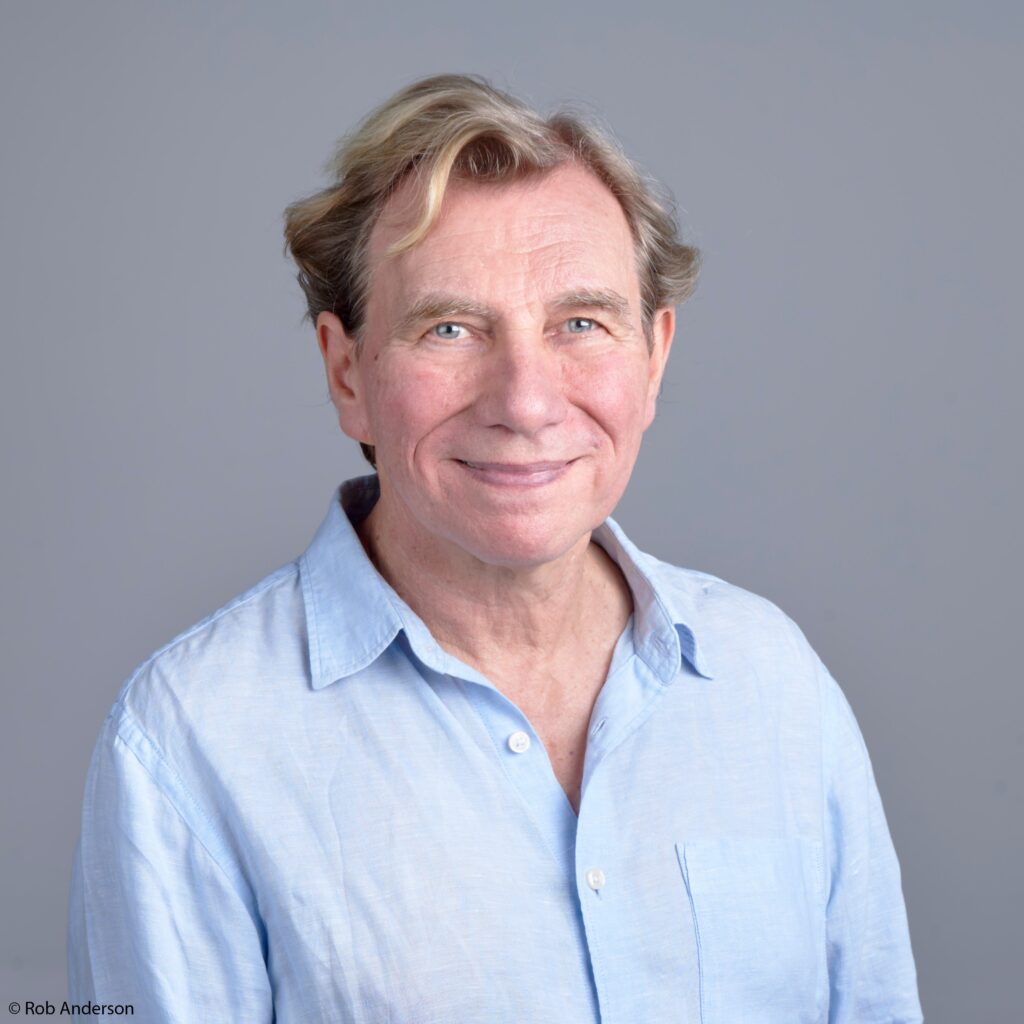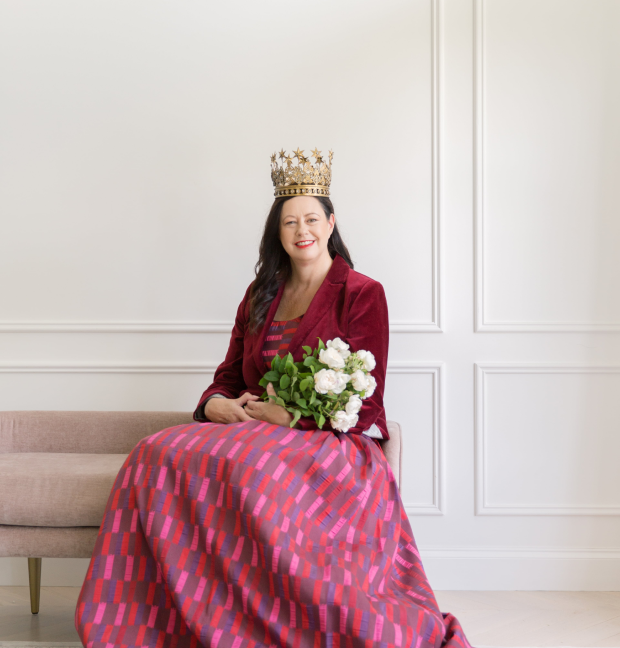
Paul Morgan is the author of two previous novels, The Pelagius Book and Turner's Paintbox, both published by Penguin. He was born in London, educated at the University of Wales, where he studied Philosophy and English, and lives in Melbourne, Australia. His most recent novel is The Winter Palace.
In 1939, Anton, a captain in the Polish army, says goodbye to his wife, Elisabeth, and goes to defend his country. They make a vow that – whatever happens, however much time passes – they’ll meet again at the Winter Palace, their stately home in the Polish countryside.
The winds of war draw them far apart. Anton is captured and sent to Siberia as a POW. He eventually joins a lost army that battles through snowstorms and scorching deserts in Central Asia to find freedom. Anton survives, driven by his determination to join Elisabeth again. She, meanwhile, is forced to be the ‘mistress’ of a Nazi officer before escaping to join the Polish resistance.
As the war ends, Anton and Elisabeth are at the opposite ends of the world. Anton is in Australia. Elisabeth is in Poland, awaiting his return for months and then years. Will they ever meet again at the Winter Palace?
The novel is based on the true story of the abduction of thousands of Polish people by Russia, to work as slaves, and their subsequent odyssey before finding freedom.
The seed was planted long ago, possibly in childhood. When I was ten years-old, my family moved from London to a remote village in Wales, far from my friends and familiar streets, south of the river. With time, I learned to speak Welsh and love that land in the far west of Britain. Years later, I emigrated to Australia. Melbourne is where I’ve long been happily settled, yet I still feel at home in Llanfihangel Genau’r Glyn or in Wandsworth.
There’s a Welsh word – ‘hiraeth’ – which has no exact English translation, but evokes a mixture of homesickness, longing, and a painful, sweet yearning for a place far away or long ago – a place or a time to which you can never return. Once you leave somewhere, you can never really go back. It changes. You change. The world changes.
I feel this deeply myself. It’s an emotion shared keenly by all emigrants and refugees, of course. And around one in three Australians were born overseas, after all. It has even wider relevance because we are all exiles, in time. The past is lost to us. Remember those precious childhood moments? The day you moved into your first-ever home? The last time you spoke with a family member before they died? All gone. How is it possible to move on in the present while our hearts are bound to the past?
This is the dilemma I gave to my characters in The Winter Palace, set against the incredible true story of the wartime Polish odyssey, spanning the world from Poland to Siberia, Palestine, and eventually Australia.
The first spark was reading about how Stalinist Russia kept prisoners-of-war long after the conflict ended. Many were not released until the mid-1950s, with their families ignorant of whether they were dead or alive. I imagined them waiting for year after year, not wanting to give up on their loved one. This chimed with my own feelings about time passing and the importance of memories and art to make sense of the past, to reconcile it with the present. When I then discovered an account of the Polish exile and odyssey, I knew I had my story.
I played with the idea for over ten years, but only started work in earnest after spending time in Poland to do research. And then there was all the rewriting; it took three major drafts before it was ready for submission.
The great challenge with any historical fiction is to be ruthless about cutting material that’s you find personally interesting (especially if you’ve invested a great deal of effort uncovering it) but which will clog up the story for the reader. You wouldn’t believe how much fascinating material I uncovered but thankfully left unused about Polish fashion in the 1930s, Soviet machine guns, and the politics of Palestine during the war!
I start by drawing a great arc on a piece of paper with a texta, a line of the story as it swoops up and down and up again. I then attach key episodes to this line . . . after that I start writing, scene by scene, chapter by chapter. After a first draft written by hand, Scrivener is a great help in keeping the mountains of research under control and maintaining discipline over the text. Keeping a timeline from the start is essential too, to avoid having a spring day follow summer, or jumbling up historical events when sections are moved.
The protagonists of The Winter Palace are a recently-married couple: Anton, a Polish aristocrat, landowner, and cavalry officer, and Elisabeth, his wife. He is idealistic, patriotic, and somewhat naïve. She is clever but happy to spend her life looking after their country house. Spoiler alert: things go catastrophically downhill for them after that, with many adventures, before they emerge, still alive, at the end of the war. Both change and grow dramatically after what they have experienced. Anton ends up as a penniless refugee in Australia, while Elisabeth . . . well, you’ll have to read the book!
I find it relatively easy to imagine and ‘inhabit’ a character – to become them as an actor becomes someone on stage, taking on their mannerisms and a way of speaking. As Flaubert famously wrote, ‘Madame Bovary, c’est moi’. It’s true. I guess I unconsciously draw on how I’ve felt at different times in my own life as well.
Guilty as charged.
I spent many years analysing how texts work, but didn’t dare to submit any of my own writing for publication. It was fear of criticism and rejection, I suppose. You can only progress when you learn to shrug your shoulders at rejections, and to welcome criticism from people you respect. I’ve been very lucky with my agent and editors.
I wish I was one of those people who can write in a busy café. To be really productive, though, I need isolation and silence. This means getting away regularly to spend time alone without distraction. House-sitting for generous friends makes a big difference. I don’t need much: just enough room for my Macbook and a kettle for the dozen cups of tea I make during the day (some of which I actually remember to drink).
The first part and the last. The excitement of the first carefree days when inspiration starts to flow. The final days when working with an editor to perfect the text. Why we put ourselves through the agony of the middle part – actually writing a book – is a mystery.
I don’t know that feeling.
Daydreaming. Watching people. Reading incessantly, and keeping my eyes open.
A clear desk. A big Rhodia notebook. My Pelikan fountain pen full of ink and ready for action. My Macbook fully charged.
Choosing just ten is tough. Among Australians, the wonderful Patrick White, Shirley Hazzard, and David Malouf. Then the masters, Proust, Tolstoy, and Nabokov. I’m away from my library, but names that jump to mind are Georges Simenon, James Baldwin, Michel Houellebecq, and Zadie Smith. A sure sign of a good writer is when I feel a spurt of jealousy after reading a particularly effective sentence.
The model of good writing I keep in mind is curiously a Hitchcock movie script. The characters are so lightly drawn yet so memorable. The action keeps you famously on the edge of your seat. There’s humour alongside the horror. And yet beneath the expert storytelling there are dark tides of emotion which tell a more subtle tale. This is the case with all good writing – including your own, of course.
Read a lot. Twice. First for pleasure, and then again to analyse how the text works. Why did the author do this or that? How are they economically creating characters and tension? How do they handle time passing? Could anything have been left out? How does that compare with your own writing? Are you clogging your stories’ arteries with too much detail?
I’m well into writing a new spy novel. Like The Winter Palace, it’s based on a true but little-known episode in the Second World War, and set in the neutral countries, the ‘ghost Europe’ that existed alongside the countries at war. In Sweden, Ireland, Iceland, Portugal, Spain, and Switzerland, life continued peacefully while battles raged across the continent. All was not what is seemed, however, and the Germans and the allies both vied for influence and resources in the neutral countries. The people of countries like Sweden also faced the moral dilemma of whether to take up arms against the horrors of Nazism or to save themselves by acquiescing in the occupation of Europe by the Germans. My heroes, another couple, are at the centre of this maelstrom.
You can connect with Paul and learn more about his beautiful book through his website & social media:
Website: www.paulmorgan.com
Instagram: paulmorganwriter
Facebook: paulmorganwriter

